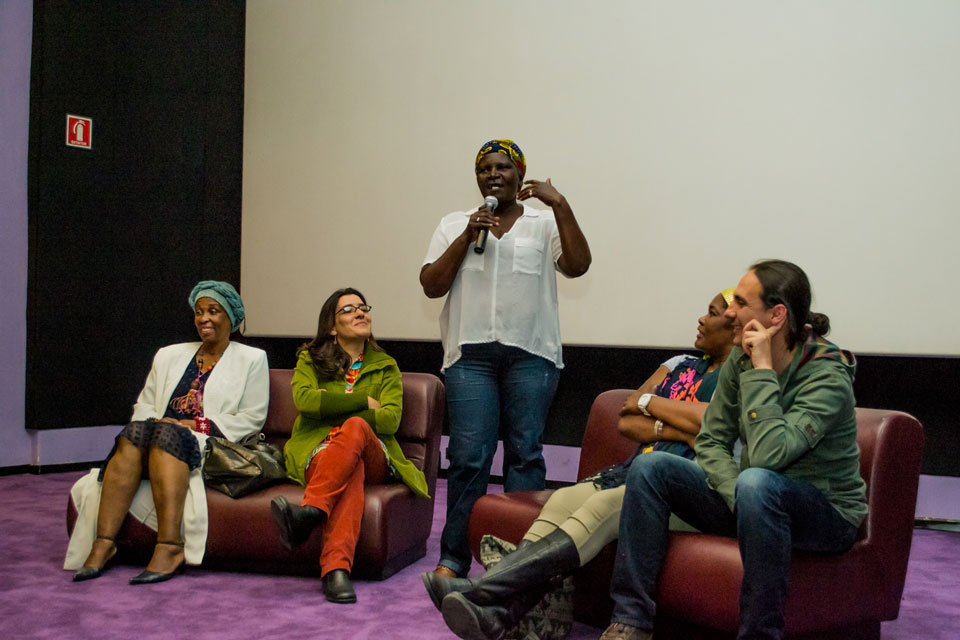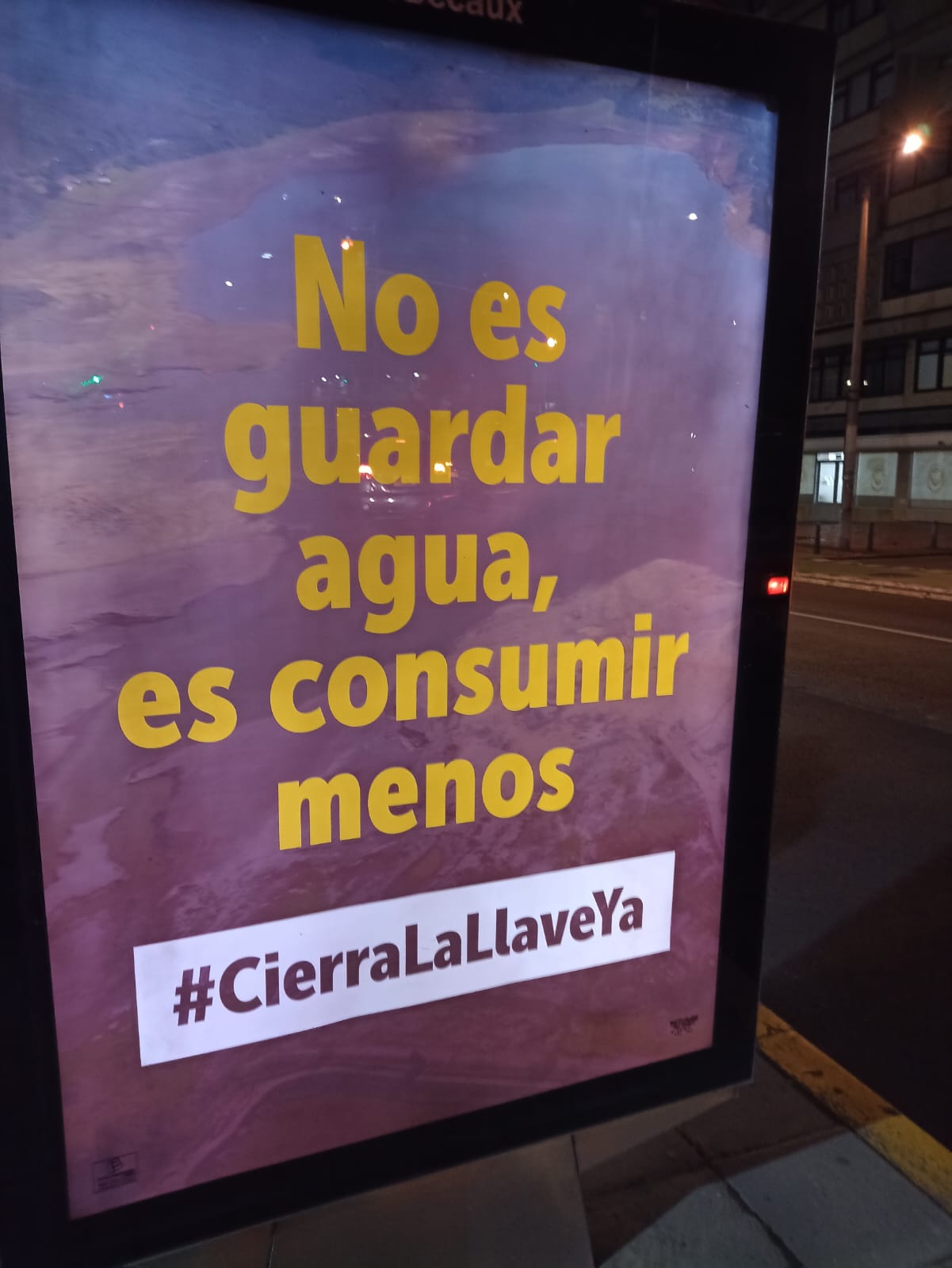
Virgelina Chará speaking at the screening of the first cut of Por qué cantan las aves. Photo: Alejandra Cardona
Many of the victims of the armed conflict have been outspoken in their support for the peace process and upcoming plebiscite. Azzam Alkadhi speaks to community leader Virgelina Chará and finds out more.
Having been forcibly displaced three times and as a victim of continued violence and threats, community leader and champion of human rights Virgelina Chará is understandably keen for the violence to end.
“The conflict has had, and continues to have, a very big effect on me”, she tells The Bogotá Post. “The fact is that breaking someone’s social, economic, political and cultural fabric and breaking up their family is simply disastrous.”
Chará, who set up Asomujeres y Trabajo – an organisation that works with women and families who are victims of the armed conflict – arrived in Bogotá in 2003, after fleeing from threats from paramilitaries.
Yet despite, or perhaps because of her struggles and ordeals at the hands of the conflict, Chará is thoroughly supportive of the peace deal. Like many victims of Colombia’s lengthy war, she wants it to end so that no more vulnerable communities have to suffer.
Asomujer y Trabajo is an organisation that works with women who are victims of forced displacement and prostitution as well as families of those who have disappeared. Formally set up in 2006, the organisation runs workshops, gives talks and helps victims to sell products, set up businesses and take part in social and political activities.
“We – the victims, women, black communities – are those who, more than most, have demanded that the government sit down with guerrilla groups so that there are no more excuses, because we are the most abused.
“In Colombia we cannot make excuses for murder, disappearances, threats, displacement and violation of human rights just because a guerrilla group exists. There is no reason for these to take place in Colombia. What we are saying is that all of them – the FARC, ELN and what is left of the EPL – must disarm [in order to stop] continued violations of citizens’ rights.
“So we will vote ‘Yes’, not because the FARC have disarmed, but because for the first time an end to the conflict in Colombia has been negotiated. And the end of the conflict calls for the armed forces to respect legal forces, for legal forces to respect citizens.”
Despite this, Chará recognises that there is still plenty of work to be done, and will not be celebrating just yet, even if the nation votes ‘Yes’ in the plebiscite.
“In Colombia, there will be no peace until there are inclusive policies, while there is no employment, no education, no health and with the existence of public policies that go against the rights of citizens. We can’t talk about peace simply because a guerrilla group has demobilised when it is the responsibility of leaders to improve the quality of life of citizens.
“We will talk about peace the day that we achieve commitment, respect for the right to life, respect for the rights of citizens and the whole issue of social inclusion in public policies for all citizens. With the riches that exist in Colombia, there should be no such thing as extreme poverty.”
However, it is clear to Chará that a ‘Yes’ vote on October 2 is essential in allowing these improvements to be made: “It’s not really about the plebiscite, because with or without us the deal has already been signed. What the president is doing is asking Colombians whether they agree that the process should continue or not.”
And to those who are planning to vote ‘No’ in the plebiscite, she says, “I call on them to read the deal. If someone is saying ‘no’ it is because they are uninformed, but when you are informed you don’t need to think about or accept what others are saying. Everyone has to decide for themselves.”
¿Por qué cantan las aves?
Virgelina Chará is one of three women featured in the documentary, Por qué cantan las aves.
The film follows three Afro-Colombian women who were displaced by the violence and have rebuilt their lives in Bogotá. The poignant cinematography features Virgelina Chará, Luz Aida Angulo Angulo and Daira Elsa Quiñones Preciado, setting their songs against the backdrop of the grimy and picturesque capital city we know so well. The women sing the songs of their homelands as they struggle to adapt. They find that music, food, sewing and gardening offer connections and even the possibility to support others.
The first cut was shown in August as part of Colombia al Parque, and Alejandra Quintana Martínez and Adrián Villa Dávila, who are behind the project, hope that they will now be able to get funding to finish it. Watch out for it at conferences, forums and festivals next year.





